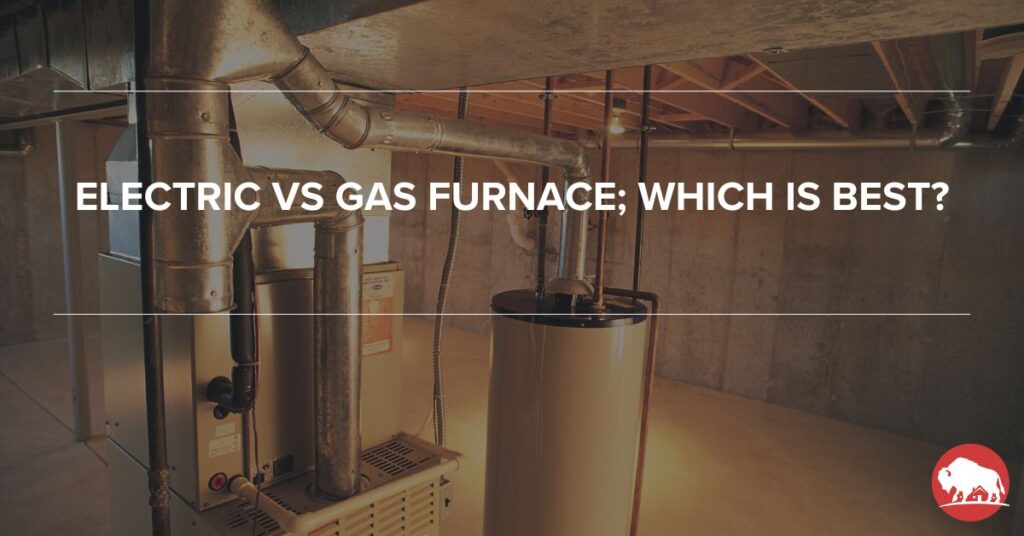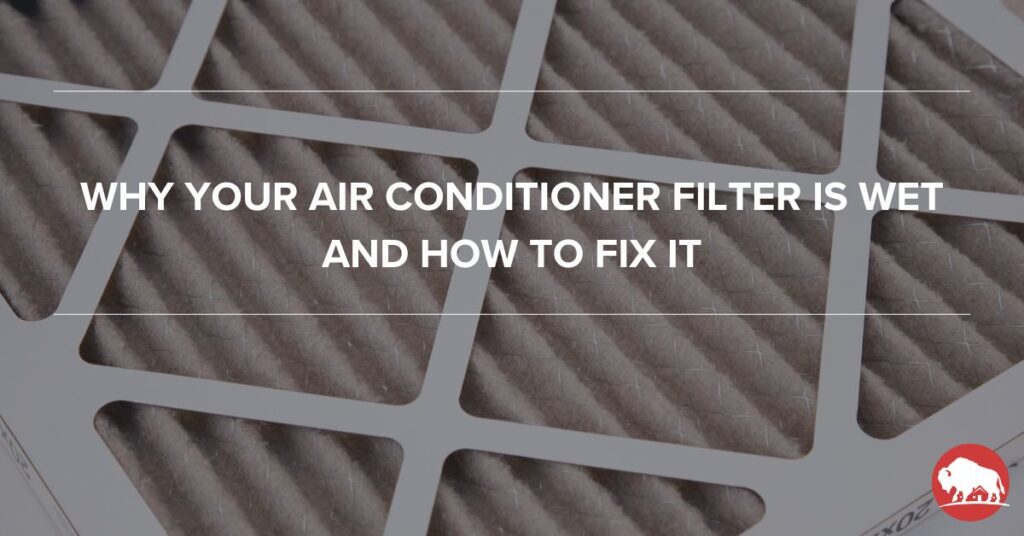Have you ever turned on your shower expecting a steady stream of hot water, only to be greeted by an impolite blast of cold water that jolts you out of your sleepy morning haze? Or have you ever noticed a strange smell or discoloration in your hot water? These are all common hot water problems that most homeowners will encounter at some point. In this article, Bison Home Service, the experts in water heater repair in Fort Collins, will shed some light on these common hot water problems.
No Hot Water
All of a sudden having no hot water can be quite a shock, especially in the colder months. This problem can be caused by a faulty gas control or damaged pilot light in gas water heaters. If the gas control valve fails, it will stop supplying gas to both the pilot light and the burner. The pilot light might also simply blow out due to a strong draft. Besides, issues with the thermocouple, which is a safety device that keeps the gas supply open if the pilot light is working, can also lead to loss of hot water. If the thermocouple isn’t functioning correctly, it might incorrectly interpret that the pilot light is off and shut off the gas supply, even when it’s not necessary.
Another causative factor can be a tripped circuit breaker in the case of electric water heaters. The circuit breaker is a safety device that cuts off the electricity supply when it identifies a fault such as an overload. If the circuit breaker is tripped, there will be no electric current to heat the water, and as a result, your water will not be heated.
Insufficient Hot Water
Insufficient hot water is a common issue homeowners face due to water heater problems. Factors such as faulty heating elements, inadequate heater size, and sediment build-up in the tank can all contribute to problems with water not getting hot enough. When components such as thermostats or heating elements fail, the water heater will be unable to produce the desired temperature. Also, a water heater may simply be too small for a home’s demand, leading to a seemingly endless shortage of hot water.
Another common reason for insufficient hot water is sediment accumulation inside the water heater tank, which could be the result of hard water. Sediment settles at the bottom of the tank and creates a barrier between the burner and the water, thus lowering the heater’s efficiency. This leads to a reduced output of heated water from the tank. Left unresolved, this issue not only deprives you of the comforting hot showers but also worsens over time, causing additional damage to the water heater and demanding costly repairs.
Discolored or Bad-Smelling Hot Water
Discolored hot water or a bad smell emanating from your hot water can often be a serious indicator of a water heater problem and an indicator you may need to replace a water heater. The presence of minerals, sediment, or bacteria in the water heater can alter the color or give the water a foul smell. For instance, an old water heater that hasn’t been cleaned for a long time may accumulate rust or mineral build-up leading to discolored water. This discoloration usually appears as a rusty hue and can be most noticeable when the hot water is first turned on or after long periods of inactivity.
Similarly, if your hot water has a strange odor, it might be due to bacteria present in the tank. This bacteria often thrive in the warm, damp environment of the water heater and can multiply over time, causing the water to develop an unpleasant smell, often described as a ‘rotten egg’ smell. This is frequently the result of a reaction between the anode rod in the heater, which is designed to prevent corrosion, and the bacteria present in water. The problem could be serious enough to warrant immediate attention and possibly might require a replacement of the anode rod, or in some cases, the entire water heater.
Noisy Water Heater
A noisy water heater is a common issue many homeowners face. Various factors can lead to this problem, such as sediment build-up, valve issues, or high water pressure. Sediment build-up is the most common cause of a noisy water heater. Over time, loose minerals in the water, like calcium and lime, can settle at the bottom of the tank, leading to pops, crackles, or rumbling sounds as the sediment heats and reheats.
A faulty or failing pressure relief valve can also cause a high-pitched whining or humming noise. If the valve doesn’t fully close, water can leak out, causing the valve to make noise as water passes through it. Similarly, high water pressure can lead to a loud knocking or hammering sound in pipes, which can be transferred to the water heater. The high pressure causes the water to hit against the water heater’s walls, resulting in noise. In the long run, these issues could potentially damage the water heater or significantly reduce its lifespan.
Leaking Water Heater
One of the most common issues that homeowners face with their water heaters is leakage. There are several causes for a leaking water heater, including high pressure, a corroded water tank, loose pipes, or a faulty drain valve. When a water heater heats up water, the water expands, and if the pressure is too high, it can lead to leaks. This is typically seen in closed systems that lack an expansion tank to accommodate the increased volume of water.
Corrosion is another cause of leaks in water heaters. Over time, minerals in the water can corrode the inner surface of the tank, leading to small holes or cracks. This corrosion can lead to water escaping from the tank. Loose or aged pipes are also a common cause of water leakage. The pipes connected to the water heater might become loose over time or be worn out, leading to water leakage. Lastly, a faulty drain valve can also cause a leak. If the valve isn’t tightly closed or is damaged, it can allow water to leak out. To prevent water damage to your home, it’s important to regularly monitor the condition of your water heater and address any issues promptly.
What is the Best Way to Fix a Malfunctioning Water Heater?
You can usually troubleshoot common hot water problems at home, however, remember that your water heater is an intricate piece of equipment. In the interest of safety and preventing further damage, it’s always best to turn to a plumbing professional when you’re unsure.
At Bison Home Service we have a crew of highly skilled, experienced professionals ready to assist you with a water heater diagnosis, repair, or replacement. We’ll provide quality, prompt, and reliable service that will leave you with a perfectly functioning water heater and peace of mind. For water heater repair in Fort Collins, contact Bison Home Service to schedule an appointment.
For more tips on handyman projects and maintaining your home, follow us on Facebook at: https://www.facebook.com/bisonhomeservice.






